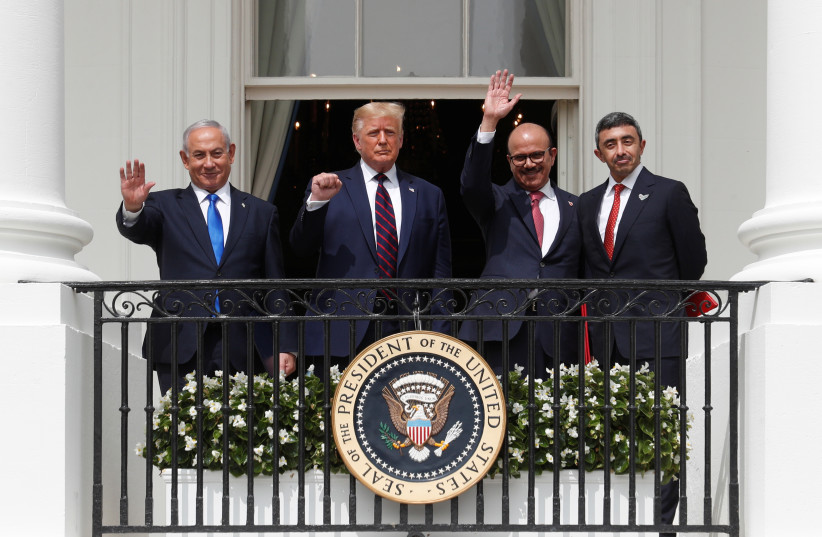Monday’s vote will only be on peace with the UAE because the peace treaty with Bahrain has yet to be written.

The cabinet is set to vote on Israel’s peace agreement with the United Arab Emirates on Monday, ahead of a Knesset debate and vote on Thursday.
Monday’s vote will only be on peace with the UAE because the peace treaty with Bahrain has yet to be written.
The vote will take place nearly a month after the signing ceremony at the White House in Washington. Prime Minister Benjamin Netanyahu signed a seven-page peace treaty with the UAE and a brief declaration of peace with Bahrain, ahead of a formal treaty to be completed at an undetermined date.
The Knesset will discuss and vote on the treaty in the plenum. Knesset Speaker Yariv Levin rebuffed Knesset Foreign Affairs and Defense Committee chairman Zvi Hauser’s call for the vote to go to his panel.
Hauser argued that bringing the treaty to the Foreign Affairs and Defense Committee would show respect for the Knesset.
In response, Levin said: “Though there is no legal requirement to bring the agreements for authorization in the Knesset, the prime minister decided, in coordination with me, to bring them… and thus fully respect [the Knesset].”
The Treaty of Peace, Diplomatic Relations and Full Normalization Between the United Arab Emirates and the State of Israel commits its signatories to “continuing their efforts to achieve a just, comprehensive, realistic and enduring solution to the Israeli-Palestinian conflict” and to “working together to realize a negotiated solution to the Israeli-Palestinian conflict that meets the legitimate needs and aspirations of both peoples, and to advance comprehensive Middle East peace, stability and prosperity.”
The agreement avoids any topics that may be controversial, such as a Palestinian state, the suspension of Israel’s plans to apply sovereignty in Judea and Samaria or American arms sales to Abu Dhabi.
As such, it is expected to pass unanimously in the cabinet and with minimal opposition in the Knesset.
The peace documents between Israel and the UAE and Bahrain are also known as the Abraham Accords, highlighting interfaith tolerance.
The UAE-Israel treaty states the signatories are “recognizing that the Arab and Jewish peoples are descendants of a common ancestor, Abraham, and inspired, in that spirit, to foster in the Middle East a reality in which Muslims, Jews, Christians and peoples of all faiths, denominations, beliefs and nationalities live in, and are committed to, a spirit of coexistence, mutual understanding and mutual respect.”
The parties agreed to establish peace, diplomatic relations and normalization, to exchange ambassadors and open embassies, and to cooperate in finance and investment, civil aviation, consular services, innovation, trade and economic relations, healthcare, science, technology, “peaceful uses of outer space,” education and more.
As reported by The Jerusalem Post
